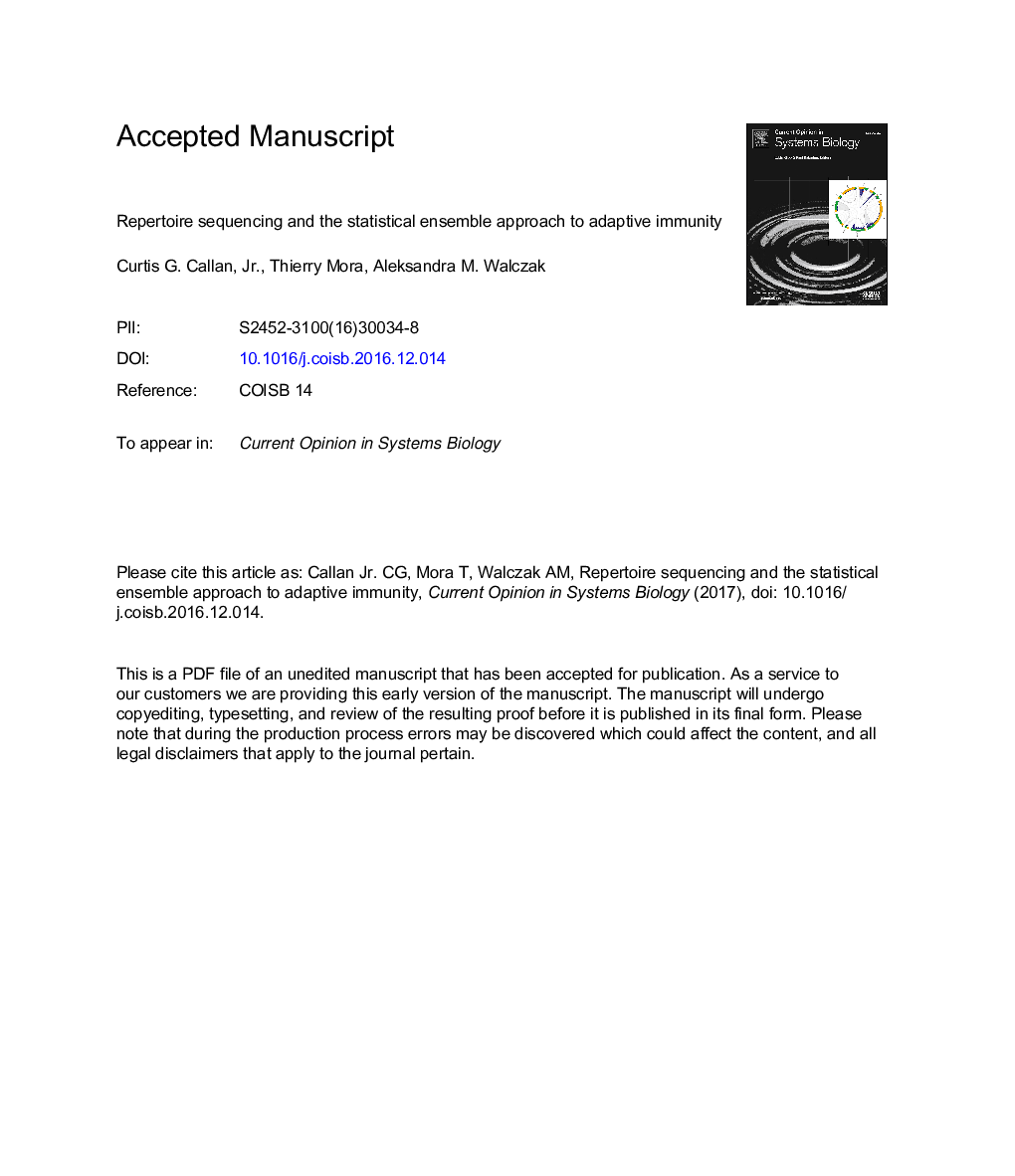| Article ID | Journal | Published Year | Pages | File Type |
|---|---|---|---|---|
| 8918221 | Current Opinion in Systems Biology | 2017 | 6 Pages |
Abstract
The recent advent of high-throughput sequencing of immune receptors allows for the study of immune repertoires in unprecedented depth. This should eventually lead to a better understanding of basic immune function and the development of valuable new diagnostic tools. However, the interpretation of these new sequence data can be difficult because the relationship between receptor sequence and immune specificity is generally unknown. In particular, phenotypically similar repertoires will in general be completely different at the sequence level because of cross-reactivity. Here we argue that sequence repertoires need to be considered statistically to overcome this functional degeneracy. New tools are needed to extract the functionally relevant statistical features from sequence data, separating them from individual-specific, stochastic, and other non-reproducible effects.
Related Topics
Physical Sciences and Engineering
Computer Science
Computer Science (General)
Authors
Curtis G. Jr., Thierry Mora, Aleksandra M. Walczak,
